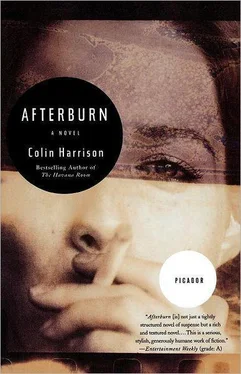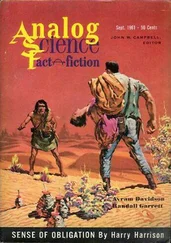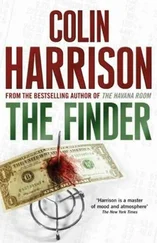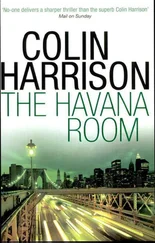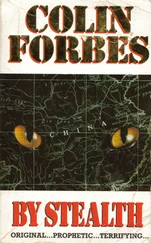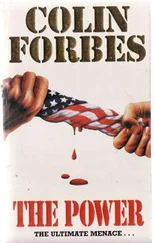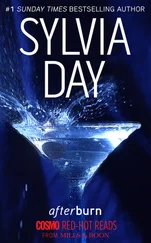Colin Harrison - Afterburn
Здесь есть возможность читать онлайн «Colin Harrison - Afterburn» весь текст электронной книги совершенно бесплатно (целиком полную версию без сокращений). В некоторых случаях можно слушать аудио, скачать через торрент в формате fb2 и присутствует краткое содержание. Жанр: Триллер, на английском языке. Описание произведения, (предисловие) а так же отзывы посетителей доступны на портале библиотеки ЛибКат.
- Название:Afterburn
- Автор:
- Жанр:
- Год:неизвестен
- ISBN:нет данных
- Рейтинг книги:3 / 5. Голосов: 1
-
Избранное:Добавить в избранное
- Отзывы:
-
Ваша оценка:
- 60
- 1
- 2
- 3
- 4
- 5
Afterburn: краткое содержание, описание и аннотация
Предлагаем к чтению аннотацию, описание, краткое содержание или предисловие (зависит от того, что написал сам автор книги «Afterburn»). Если вы не нашли необходимую информацию о книге — напишите в комментариях, мы постараемся отыскать её.
Afterburn — читать онлайн бесплатно полную книгу (весь текст) целиком
Ниже представлен текст книги, разбитый по страницам. Система сохранения места последней прочитанной страницы, позволяет с удобством читать онлайн бесплатно книгу «Afterburn», без необходимости каждый раз заново искать на чём Вы остановились. Поставьте закладку, и сможете в любой момент перейти на страницу, на которой закончили чтение.
Интервал:
Закладка:
She walked into an electronics shop and asked for the biggest bag they could give her. She switched her belongings into it and discarded the garbage bag. In SoHo, walking north on Broadway, she saw the Guggenheim's downtown museum, went inside, and procured a big paper bag with the museum's logo on it. That was better. Just north of Houston she stopped in a little pizza joint. She ordered two slices with everything on them and a Coke-a cold, beautiful Coca-Cola-and carried the greasy paper plate to a table in the back and looked around at the other patrons-delivery boys and secretaries and construction workers. She put her mouth against the warm crust, her nose filling with the oregano and basil, and suddenly began to weep. It was all so stupid. Stupid and sad! Four years gone. Everything had been torn away-her apartment, her books, her cat, the people she used to know. And she'd spent four years learning the routine of the prison, which, though hateful for its regularity, was at least something, a pattern, a dailiness she understood, and she had gotten to know the women and love some of them, Mazy especially. Now that was gone. She knew how hard it was going to be to get started again. She would do what was necessary, and find a job, find a place to live, try not to let Tony Verducci find her, but in this moment, with the warm pizza so sadly delicious, its intense desirability indicating the utter desolation of her life, she felt grief cut through her. She was, she knew, entirely alone.
A half hour later, she found what she was looking for, a secondhand clothing shop in the East Village, the late-morning sun bright against its front window. The bell tinkled as she stepped inside, and an old man in a purple T-shirt looked up from his magazine and stubbed out his cigarette.
"Hi, dear." He eyed her Guggenheim bag.
"I used to come into this place, long time ago." She looked around. "I once bought the most beautiful kimono here."
The man lifted a pair of half-frames to his nose. "I remember you! It's been a long time. Been away, darling?"
"I have."
His eyes brightened. "Was it a man on a train? Some fellow with a nice hat?"
She smiled. "Not exactly."
He came out from around the counter and sized her up. "Oh well, then, let me guess again."
"Please."
He took the challenge seriously. "Well, I'll say it was a-a calamity, a storm, that just took you, dear, and you had no power over it!"
"That's about right."
"And you came here, you came back, because you were happy here, right here, in my little old shop."
"That's true." She smiled. "And now I need a dress, sort of nice, not cheap-looking."
He nodded. "I have it."
He flipped through a rack of dresses, pulled out a red cotton one.
"No."
"No?"
"That'll make me look too flat."
"But, honey, you are definitely not."
"I know, that's the point." She tipped up her chin. "Don't you know how boys think?"
"Yes, I do. They're all nasty." He smiled wickedly. "One way or the other."
"I need something sort of nice, but not-something that is, you know, a little-"
"Something that says, Here I am."
"Right."
He went to another rack. While he flipped through dresses, she picked up a copy of The Village Voice from the stack on the glass counter.
"This is free now?" she said.
"Yes." The man nodded. "Free as love."
"Why?"
"They were losing against the free weeklies. They're all the same, anyway. Sex this, sex that. It's the only reason people read them."
"Only reason people do a lot of things."
He pulled out a black sleeveless dress buttoned up the front with cunning little buttons. Everything about it said, Cigarettes, table for two, and please bring me a martini. "I mean, honey, this is practically illegal!"
She had her black mail-order bra and underwear in her bag. "How about shoes?" she asked.
"How about them? I've got those, too."
"Does that lady across the street still rent out rooms by the week?" she called after the shopkeeper.
"If I say you're okay," he answered over his back, "she will."
"Will you say I'm okay?"
His face hardened. "I always ask a few questions for her. She's a nice old lady who can't hear too well anymore."
"Okay." She nodded quickly.
"Just don't fib to me, either, because I do her evictions for her. I mean, I get someone who does it for her, someone who, you know, likes to do evictions."
"Right." He's cruel, she thought, so don't beg.
He looked her over, first hanging up a dress. "Now then, you're back in the city?"
"And need a cheap place to live."
"What was your last place of residence?"
"Prison, actually."
"Oh well, forget it!" He waved his hands in frantic dismissal.
"What do you mean, forget it?"
"Forget it means forget it. You're a criminal."
"Not really."
"What's that mean?"
"I broke the law, but I'm not a criminal."
"What did you do?"
She took a breath. In the future she would not mention prison. People couldn't handle it. "My boyfriend worked in a ring that stole shipments out of cargo warehouses and then resold the stuff. Most of the time I just went to college. But then I dropped out and read a lot. Then I helped him a little bit with his scheduling. I got caught. The others didn't. I didn't talk, which made the D.A.'s Office pretty mad. They had, shall we say, very little compassion."
"What happened to the rest of the baddies?" said the shopkeeper, arms folded in front of him.
"I have no idea."
"Was it drugs?"
"The stuff in the trucks? No."
"Are you a junkie?" he asked Christina.
"You already looked at my arms, I saw you."
He peered at her through his half-frames. Then, as if losing interest in the conversation, he held up a heavy silvered hand mirror.
"That's very nice."
"London, turn-of-the-century. I keep it to remember what style those Victorians had." His eyes, however, narrowed again. "You have some kind of regular income?"
"Soon."
"Kids coming to live with you?"
"No."
He set the mirror down. "Do you have kids?"
"No."
Then he sighed, shaking his head. "Tell me something that lets me understand you, honey, that makes you a person to me, something that lets me see your mind."
"It's a question of whether or not I'm presentable?"
"You could put it that way."
She nodded silently and gazed around, as if for a topic of conversation. Then she picked up the old silver mirror and held it close to the shopkeeper's face so that he could see himself, peer at his own whiskers and saggy eyes. "Victorian England," she began, "in addition to the ornately mannered upper-class style that you find so attractive, was notable for its return to the use of flogging minor criminals, a practice that had ceased years before. Under the Vagrancy Act of 1898, those who were convicted of deviant male behavior-including exhibitionism, solicitation of homosexual acts, and masquerading in female attire-were flogged with a lash, often quite brutally."
He glanced from the mirror into her eyes. "Yes," he said. "Yes, I think I see. Is that your period? The Victorian era?"
She shrugged.
"Tell me something more."
"Because you don't believe me?"
"No, just for the pleasure of it. Flog me with another fact or two."
She looked about the shop for inspiration, spied a man's long wool coat with heavy buttons. "When Charles Dickens died, the momentousness of his death was such that his grave at Westminster Abbey was left open for two days. During that time thousands of people passed by, gazing down into the earth at his open coffin. Hundreds dropped in bouquets. He was a genius buried in flowers."
"Yes." The shopkeeper picked up the phone. "Yes!"
Twenty minutes later, she had been admitted into the lobby of the blue six-story apartment house across the street and was shaking the gnarled paw of a Mrs. Sanders, who appeared to be about eighty. The woman had been interrupted in her daily practice of chopping up pieces of beef heart for her four cats, who lounged fatly in her dilapidated living room, quite unworried about where their next meal was coming from, while she shuffled across the floor in a stained housecoat and set down a tiny china bowl before each. "Now then," Mrs. Sanders said to Christina. "You want to rent a room and Donald sent you over? Well, that's very good. What's your name?"
Читать дальшеИнтервал:
Закладка:
Похожие книги на «Afterburn»
Представляем Вашему вниманию похожие книги на «Afterburn» списком для выбора. Мы отобрали схожую по названию и смыслу литературу в надежде предоставить читателям больше вариантов отыскать новые, интересные, ещё непрочитанные произведения.
Обсуждение, отзывы о книге «Afterburn» и просто собственные мнения читателей. Оставьте ваши комментарии, напишите, что Вы думаете о произведении, его смысле или главных героях. Укажите что конкретно понравилось, а что нет, и почему Вы так считаете.
